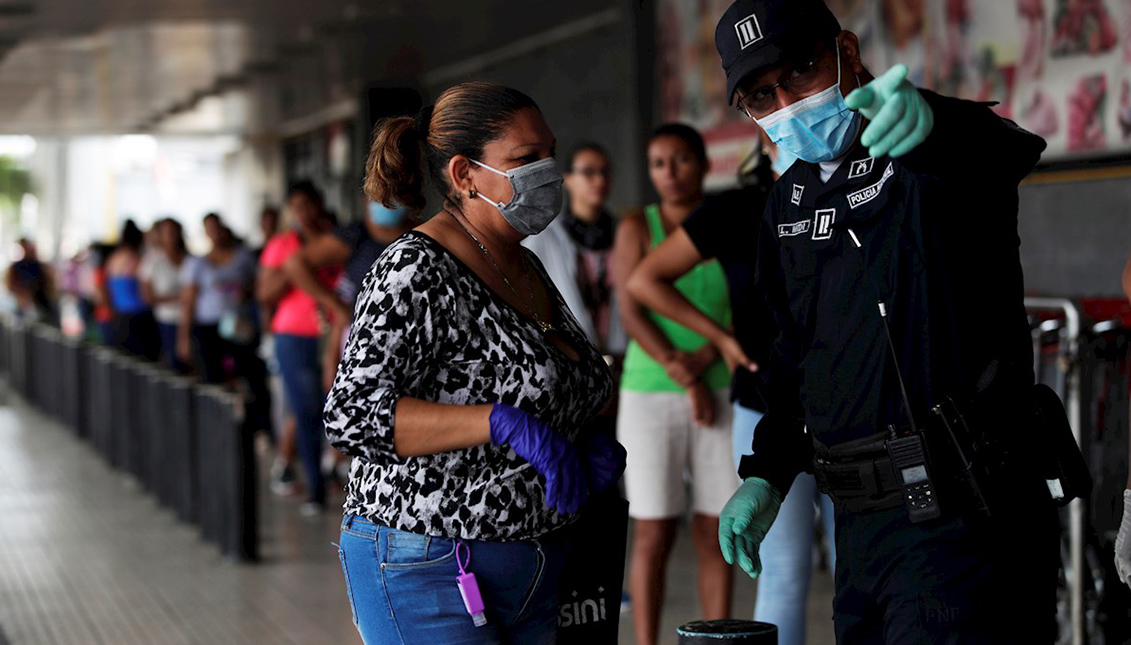
Gender quarantine triggers transphobia in Panama
Imprisonment or tagging, these are the only two alternatives available to the transgender community in a country facing serious discrimination amplified by the…
The nightmare is repeated daily for people of non-normative gender in Panama since April 1, when the government ordered men and women to go out on alternate days to reduce COVID-19 infections.
A transgender man dressed in his male clothes and with facial hair, goes to the supermarket, the bank or to a pharmacy on a Monday and all the feminine glances fall on him. What is he doing here? Doesn't he know that only women can go out on Mondays, Wednesdays and Fridays? If he decides to ignore the law, which dictates that transgender people must comply with the quarantine by following the sex on their identity card, and walks the streets on a Tuesday, Thursday or Saturday, he will be arrested.
This diatribe involves trans people during the health crisis.
In the end all that remains is isolation, extreme vulnerability, a thousand and one obstacles, and the permanent feeling that they must leave the country as soon as possible unless the government finally recognizes sexual diversity as part of Panama's reality. Unless, too, a large part of the citizenry sees the difference as a threat. What to do when one faces a double pandemic?
Fight it.
"The pandemic has highlighted the existing inequalities even more," Pau González, a 35-year-old transgender activist who had to travel to Colombia to make his transition, told El País. Although he has not yet been able to change his gender option on his identity card, he has been able to change his name — he was the first trans man in Panama to do so.
For González, the COVID-19 pandemic has brought something positive, as he notes. The possibility of being able to use the quarantine to make visible the struggles of the trans community in Panama.
"When they put the rule in place, I felt very bad, very sad, I locked myself up, I started to cry," recalled González, who works for a real estate company. "The lawyers recommended that we comply with the law, but since April 1 they have taken a trans girl prisoner who came out according to her identity and arrested another trans boy. They didn't take him to jail because he was coming out according to his ID, but they didn't let him go into the supermarket to buy food. The cop told him he looked like a man and didn't understand."
Sponsored by the human rights organizations that denounced the detention of trans people by the police under the accusation of violating the quarantine, Pau Gonzalez began to prepare a report with the cases of discrimination that had occurred since April 1 and sent them to the Government. He also tried to raise awareness among supermarket owners, whose employees were discriminating against trans people and preventing them from entering the stores.
RELATED CONTENT
"We managed to do two virtual workshops for all the administrative staff (of those stores) on why they should not discriminate. I involved the Ombudsman's Office, an allied lawyer and we gave these trainings," he says.
After four years of fighting for the rights of trans people and the creation of the organization Hombres Tran Panamá along with other activists, González knows the path to equality will be long, but he will continue to demand legal recognition of sexual diversity.
"The law right now in Panama states that in order to make that change you have to go through a forensic doctor who will do a physical exam to determine what your sex is. This is against human dignity. It's humiliating, denigrating, and a recipe for torture," he states.
"To this day we still can't make the change of scoreboard and with the binary exits from quarantine everything is much more difficult. I'm almost there for three years of transition and people are treating me like I am," adds the Panamanian, who warned that although the selective quarantine measures have been relaxed in recent weeks, there could be further arrests and harassment.
At the beginning of the pandemic, organizations like Human Rights Watch sent an open letter to President Cortizo and a subsequent report. Finally, the Panamanian Ministry of Public Security committed last July to avoid any kind of discrimination against the LGBTQ population and the government denounced transphobia, assuring that Panama respects "diversity of identity and expression", and urged public and private entities to end discrimination.
However, a change in global awareness needs laws to protect it. Not words, facts.











LEAVE A COMMENT:
Join the discussion! Leave a comment.